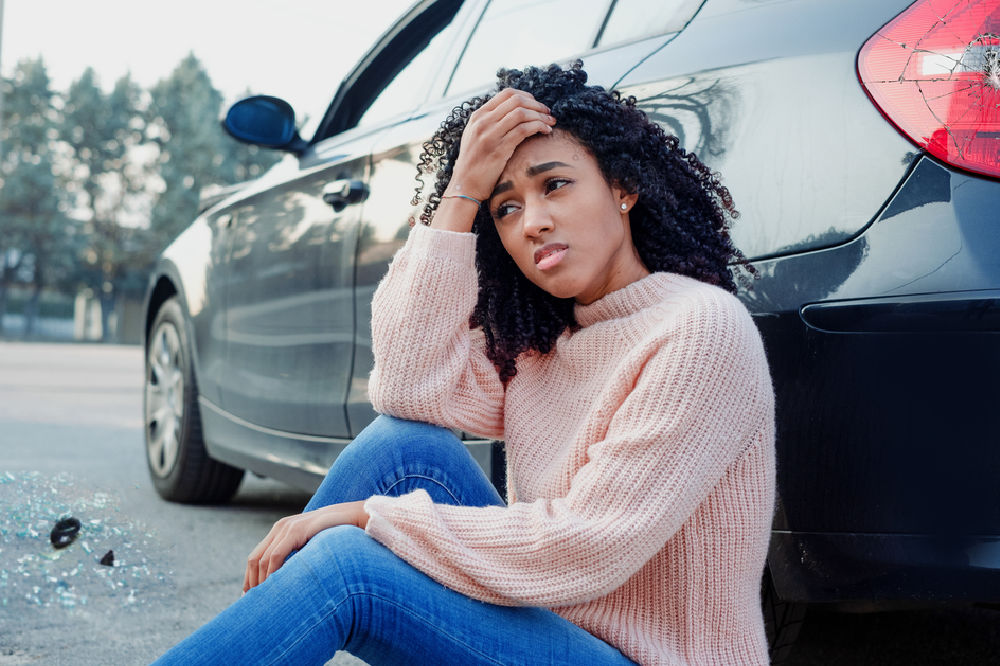Although car accidents are quite common, they are often jarring and traumatic events for some individuals. Just as physical injuries may occur in any accident, including minor ones, the same goes for mental illnesses. But symptoms aren’t always apparent right away and may not develop until well after the accident occurred.
Post-traumatic stress disorder (PTSD) is one of many mental conditions that may result from a car accident in Indiana, and it’s important to know the symptoms so you can seek help and compensation as soon as possible once you recognize you’re suffering from this condition.
What Is PTSD?
PTSD is characterized by having difficulty functioning with everyday life due to the experience of a traumatic event, including one such as a car accident. Normal activities such as going to school or work or spending time with family and friends can become difficult because of PTSD. While it’s common to feel upset after a traumatic event, if the feelings continue, intensify, or cause emotional disturbance for months after the incident, it may be PTSD.
PTSD Car Accident Symptoms
Car accident victims may experience a wide range of symptoms after a car accident, and they can significantly vary from one person to another. If an individual does not experience most or all of the symptoms listed below, it does not mean that the person is not suffering from PTSD. This is a list of common symptoms that could be an indication that a person is indeed experiencing PTSD and may want to get help. If you believe you have PTSD, seek medical advice from your physician.
- Flashbacks and Reliving the Traumatic Event
It may be extremely difficult for a car accident victim to stop thinking about the accident and may end up reliving the incident repeatedly, replaying it in their mind, and wishing they could have prevented it from happening.
Flashbacks are another form of mentally revisiting the event in which the victim may experience the sensations of being back on the scene of the accident–seeing and hearing the situation play out as if they were right there. These instances may be triggered by a specific stimulus that reminds the victim of the event, and at other times the flashbacks may arise seemingly randomly. Flashbacks can themselves become traumatic for individuals and may cause further pain and suffering.
- Avoidance
It’s common for PTSD sufferers to avoid any scenario that reminds them of the traumatic event they suffered. For instance, a car accident victim with PTSD may struggle to drive or even get into a vehicle. They may also keep away from the scene of the accident or anything that reminds them of the accident.
- Detachment
Car accident victims may intentionally distance themselves from others because they feel that no one else can relate to what they experienced. They may detach from loved ones and disengage from activities that were enjoyed prior to the car accident to break contact with others. Withdrawing like this can lead to feelings of loneliness, isolation, and strained relationships.
- Anger
One of the emotional effects of PTSD from a car accident is the tendency to feel angry, even from triggers unrelated to the incident. Unexpected outbursts may occur and the victim may struggle to control their anger.
- Intrusive Thoughts
Unpleasant thoughts or images that get stuck in your head are considered intrusive. If a car accident victim struggles with these unwanted thoughts persistently popping into their mind, it can cause pain and suffering and indicate that the person has PTSD. They can also be a sign of another underlying mental illness such as anxiety.
- Depression
Car accident victims can have both depression and PTSD at the same time, and they each increase the risk of developing the other. Research shows that almost half of people with PTSD have simultaneously experienced depression. Many symptoms of the two conditions overlap, so it’s often challenging to discern the two. They can both cause lower energy, disinterest in activities, and detachment from others and can interfere with daily life.
- Anxiety
Anxiety is another mental health condition that is often a comorbidity with PTSD. Car accident victims with PTSD may struggle with increased anxiety in situations that remind them of the incident, like driving or sitting in a vehicle. The victim may also feel anxious in completely unrelated situations.
- Poor sleep
Sleep issues may manifest differently for various individuals suffering from PTSD, but sleep disturbance is a common symptom. Some may have trouble falling asleep, some may sleep much more often, and some may experience frequent nightmares.
- Difficulty Concentrating
Individuals with PTSD from a car accident may struggle with concentrating, whether it’s because of intrusive thoughts, lack of sleep, or anxiety. They may find it difficult to focus on tasks for school or work or even everyday activities that they were once interested in.
What to Do if You Experience PTSD Symptoms After a Car Accident
If you are experiencing PTSD symptoms after a car accident, the following steps are recommended:
- Seek help from a mental health professional. Many modes of therapy can be beneficial for individuals with PTSD after a car accident. Here are some of the methods that may help:
- Cognitive-processing therapy
- Prolonged exposure therapy
- Stress inoculation training
- Eye movement desensitization and reprocessing (EMDR)
- Medication
- Animal therapy
- Group therapy
- Get support from loved ones
- Avoid triggers
- Seek financial compensation
Crossen Law Firm Can Help
If your PTSD resulted from a car accident in which another driver was at fault, you may be entitled to financial compensation. If you are left with unanswered questions, including, “Can you get PTSD from a car accident?”, experienced personal injury attorneys like those at Crossen Law Firm can evaluate your case and help you seek the compensation you deserve, relieving you from the costs involved with your therapy and treatment of PTSD.

 317-401-8626
317-401-8626 
.jpg)